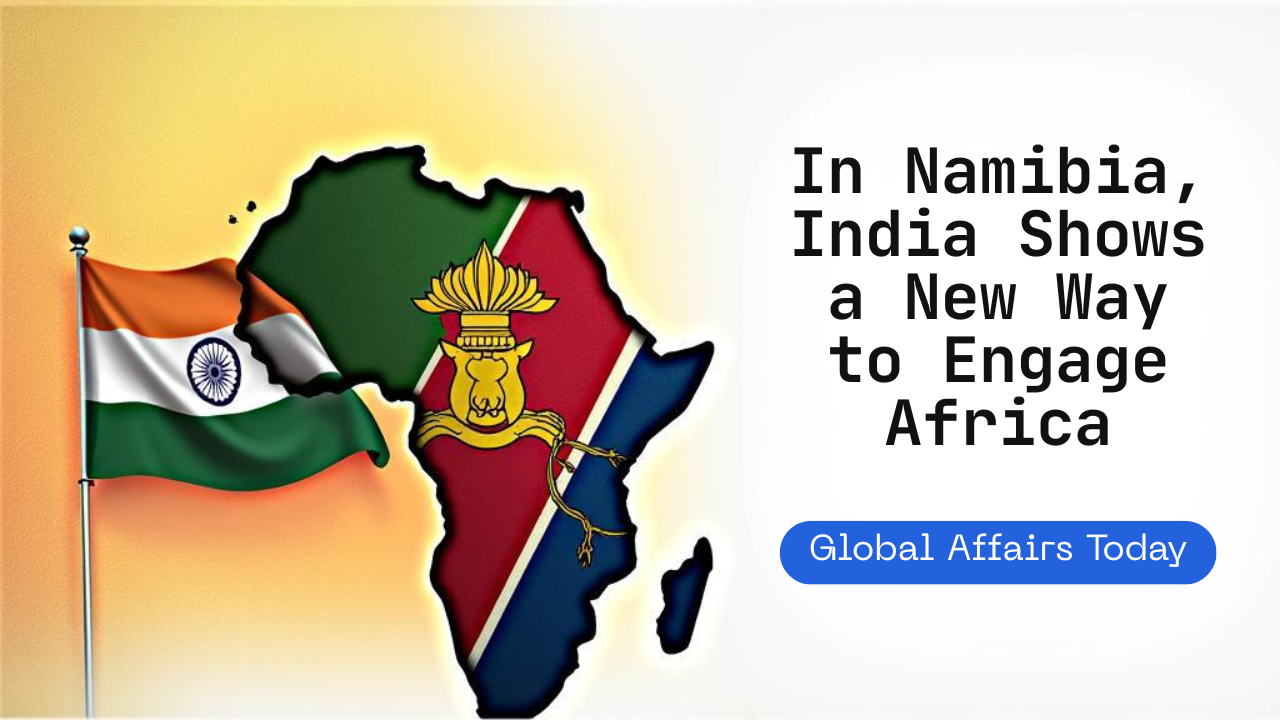
When Prime Minister Narendra Modi addressed Namibia’s National Assembly in July this year, it marked more than just a diplomatic visit—it symbolized India’s deeper, more thoughtful engagement with Africa. Modi began his speech by quoting Namibia’s national poet, invoked the symbolism of the Windhoek armistice, and sprinkled references from African history with Indian freedom struggles.
This wasn’t a routine speech. It was a deliberate effort to weave history, memory, and shared struggles into the fabric of India–Africa relations. And in Namibia, a nation with a rich liberation legacy, that symbolism was powerful.
India’s Strategic Steps in Namibia
The visit reflected a three-pronged strategy for India’s Africa engagement:
1. Shared Anti-Colonial Memory
India positioned its diplomacy not as nostalgia, but as solidarity rooted in anti-colonial struggles. Referencing Namibia’s liberation and India’s role in global peacekeeping resonated strongly with the Namibian people.
2. Deepening Economic Partnerships
India highlighted the $800 million bilateral trade with Namibia, part of its growing $90 billion engagement across Africa. Key areas included energy, mining, health, and technology.
3. Smart, Issue-Based Partnerships
Beyond trade, the visit produced two MoUs:
One on entrepreneurship and health
Another focused on global governance reforms and capacity-building
This signals India’s shift towards smaller but sharper partnerships, targeted to each African nation’s needs.
Why Namibia Matters?
Namibia may not be Africa’s largest economy, but it is strategically vital:
1. It sits on the Atlantic coast, connecting African supply chains.
2. It has rich deposits of uranium, rare earths, and diamonds—critical for global energy transitions.
3. Its young population is eager for education, jobs, and healthcare partnerships.
4. For India, Namibia is a natural partner in shaping an inclusive, sustainable model of growth in Africa.
inclusive, sustainable model of growth in Africa.
India’s Broader Africa Playbook
India’s engagement in Namibia reflects a new template for Africa relations:
1. Smart Diplomacy → Anchored in shared history, but forward-looking.
2. Selective Partnerships → Focused on capacity-building, tech, and entrepreneurship rather than just aid.
3. People-Centric Approach → Investments that touch lives directly, such as healthcare, skills, and governance reforms.
This is a quiet but powerful shift—from being a distant partner to becoming an ally in Africa’s growth story.
Takeaway
India’s outreach to Namibia isn’t just about trade or diplomacy—it’s about shaping a mutually respectful, sustainable, and future-ready partnership. As global powers race to court Africa, India is showing that engagement built on memory, inclusivity, and smart partnerships can be both strategic and humane.
In the words of one analyst: “India is not only teaching diplomacy to the world, it is also learning how to walk with Africa—step by step, issue by issue, towards a shared future."
Ishani Aprajita
.




